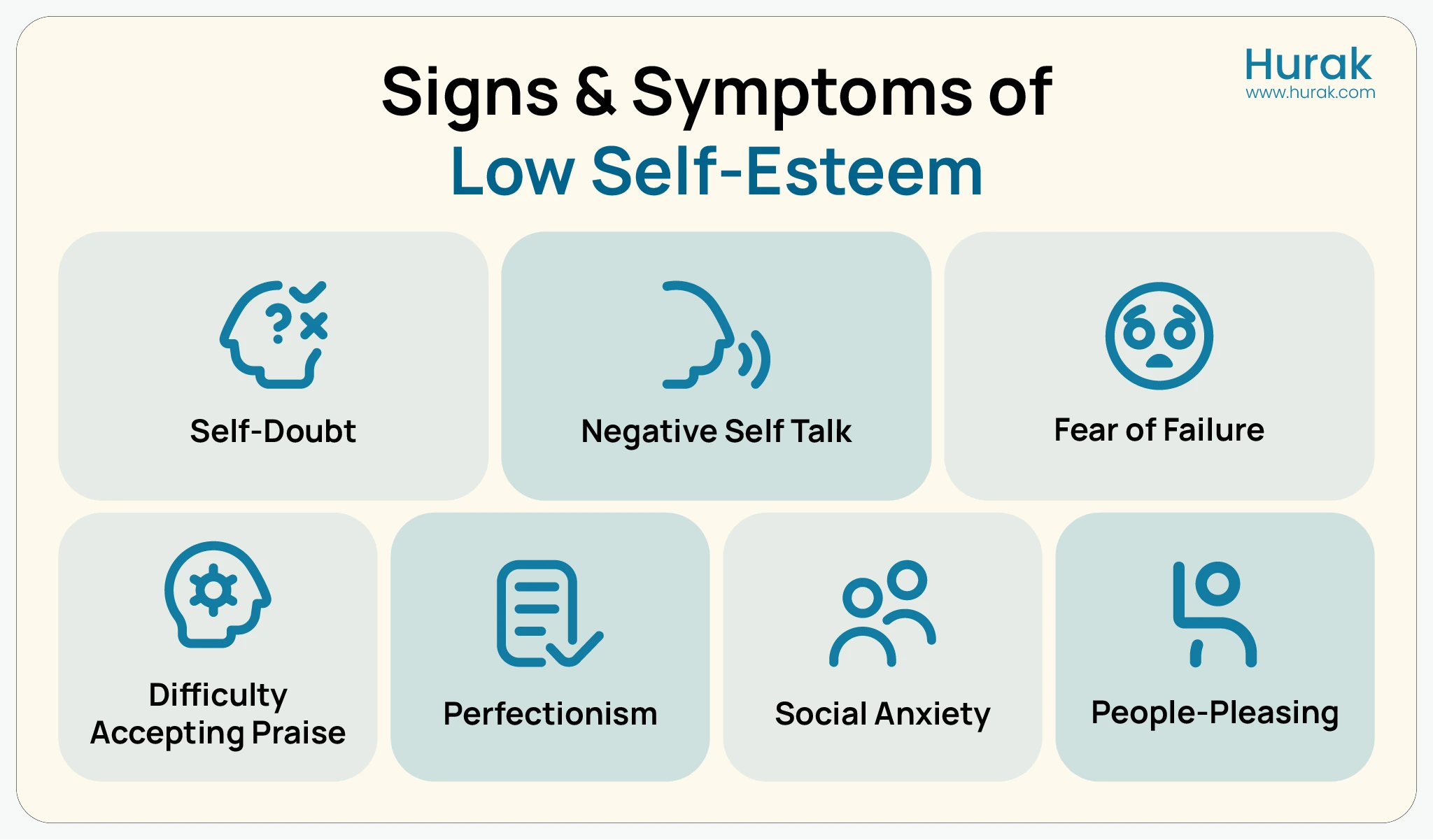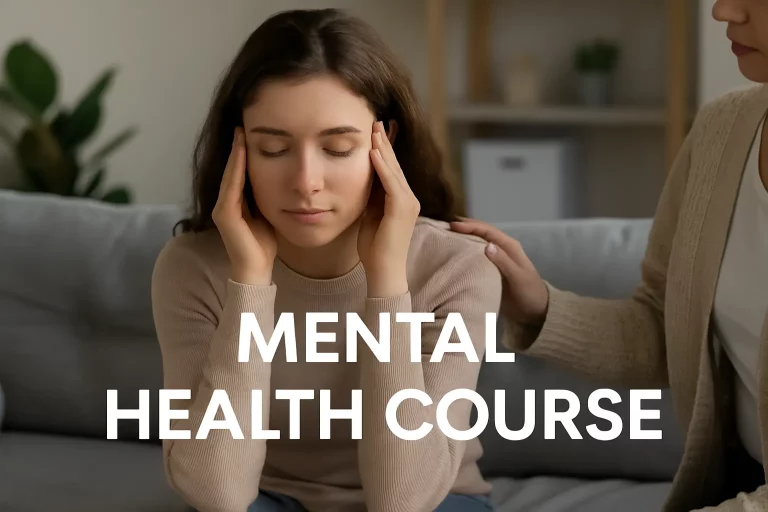
Self-esteem refers to your overall sense of self-worth and how much you value and believe in yourself. It plays a significant role in your confidence, decision-making, and emotional well-being. When self-esteem is low, it can lead to self-doubt, anxiety, and a negative self-image.
In today’s world, where social comparison is constant, it’s essential to understand the meaning of self-esteem. Strengthening your self-esteem can enhance both mental health and quality of life.
Understanding Self-Esteem
Self-esteem is our internal sense of worth that influences how we think and feel about ourselves. It is not about being perfect or having pride; instead, it involves self-acceptance and the belief that we deserve respect and happiness.
Experts view self-esteem as a fundamental part of emotional well-being. High self-esteem fosters motivation and resilience, while low self-esteem can lead to social withdrawal or excessive compensatory behaviour. The good news is that self-esteem can always be rebuilt with patience and self-awareness.
What Is Low Self-Esteem?
Low self-esteem is more than occasional doubt; it’s an ongoing belief that you’re not capable, deserving, or valuable. People with low self-esteem often doubt their decisions, feel inadequate compared to others, and struggle to accept compliments or acknowledge their achievements. This mindset can manifest in many ways, such as harsh self-criticism, excessive worry about making mistakes, fear of failure, or avoidance of new challenges. It can also affect relationships, as individuals may struggle to express their needs, set boundaries, or trust others.
Recognising the signs of low self-esteem is a crucial first step toward positive change. Awareness allows individuals to identify patterns of negative thinking and self-sabotaging behaviours. Over time, consistently applying these strategies can lead to a healthier self-image, improved decision-making, and more fulfilling personal and professional relationships.
Signs and Symptoms of Low Self-Esteem
Low self-esteem can affect thoughts, emotions, and behaviour. Common signs include:
Self-doubt: Constantly questioning your abilities or decisions.
Negative self-talk: Criticising yourself or focusing on weaknesses.
Fear of failure: Avoiding challenges due to worry about making mistakes.
Difficulty accepting praise: Downplaying achievements or feeling undeserving.
Perfectionism: Feeling anything less than perfect is a failure.
Social anxiety: Feeling nervous in social situations or avoiding interactions.
People-pleasing: Putting others’ needs first to gain approval.

What Causes Low Self-Esteem?
Low self-esteem develops from a combination of personal experiences, emotions, and environmental factors. Common causes include:
Childhood experiences
Neglect, harsh criticism, or a lack of emotional support can cause children to internalise feelings of unworthiness.
Bullying and peer rejection
Ridicule or social exclusion reinforces self-doubt.
Trauma
Abuse, loss, or other traumatic events can create lasting feelings of guilt, shame, or helplessness.
Social comparison
Comparing oneself to others, especially on social media, can intensify feelings of inadequacy.
Environmental and emotional factors
Toxic relationships, high-pressure environments, anxiety, or perfectionism can reinforce negative self-beliefs.
Negative self-talk
Persistent self-critical thoughts shape behaviour and hinder confidence.
How To Improve Self-Esteem
Improving self-esteem starts with recognising and understanding your inherent value as a person. One practical approach is to challenge negative thoughts and self-criticism, replacing them with balanced and positive perspectives.
Celebrating achievements, whether big or small, reinforces a sense of accomplishment and reminds you of your abilities. Taking small risks and stepping out of your comfort zone can gradually build your confidence, demonstrating that you are capable of handling challenges.
Equally important is surrounding yourself with supportive and encouraging people who uplift you, rather than bring you down. Strengthening self-esteem also involves building healthy attachment and independence.
When To Seek Professional Help
Low self-esteem can significantly impact various aspects of life, including personal confidence, relationships, and overall mental health. When persistent feelings of self-doubt or inadequacy begin to interfere with daily functioning, consulting a mental health professional can be highly beneficial. Therapy and counselling provide a structured and supportive environment to explore these feelings, identify their underlying causes, and develop evidence-based strategies to enhance self-esteem.
Such interventions often focus on cultivating emotional resilience, challenging negative thought patterns, and increasing self-awareness. Techniques include practising self-compassion, developing assertiveness skills, and learning adaptive coping mechanisms to manage criticism or setbacks effectively. Approaching self-esteem in this proactive manner aligns with the principles of mental health first aid:
- Recognising signs of psychological distress
- Understanding their impact
- Implementing strategies to support mental well-being
Over time, these approaches contribute to improved confidence, healthier interpersonal relationships, and a more stable and positive sense of self.
Conclusion
Low self-esteem can impact various aspects of your daily life, including personal relationships, professional performance, and overall mental well-being. However, with awareness, consistent effort, and supportive guidance, it is possible to improve and nurture a stronger sense of self-worth. Understanding what self-esteem is and how it develops is the first step toward meaningful change.
By practising strategies like challenging negative thoughts, celebrating achievements, setting realistic goals, and surrounding yourself with positive influences, you can reshape your self-perception. Seeking professional support can also provide valuable tools to enhance your emotional resilience.
These efforts lead to greater confidence, better decision-making, healthier relationships, and overall life satisfaction. Building self-esteem is an ongoing process that, with persistence and support, empowers you to face challenges confidently and embrace a more fulfilling life.
FAQs
What is self-esteem, and why is it important?
Self-esteem is the overall sense of how much you value and believe in yourself. It affects your confidence, decision-making, and emotional health. Healthy self-esteem helps you handle challenges, form strong relationships, and maintain a positive outlook on life.
What are the common signs of low self-esteem?
People with low self-esteem may experience self-doubt, negative self-talk, fear of failure, difficulty accepting praise, perfectionism, social anxiety, or people-pleasing behaviour. Recognising these signs is the first step toward improving self-worth.
What causes low self-esteem?
Low self-esteem often develops from adverse childhood experiences, bullying, trauma, or constant comparison to others. It can also result from perfectionism, toxic relationships, or prolonged stress.
How can I improve my self-esteem?
You can improve self-esteem by challenging negative thoughts, celebrating achievements, setting realistic goals, and surrounding yourself with supportive people. Practising self-compassion and seeking therapy when needed can also help.
How long does it take to build self-esteem?
Improving self-esteem is a gradual process that varies from person to person. With consistent effort, positive thinking, and professional support, many people begin to notice changes within weeks or months.





